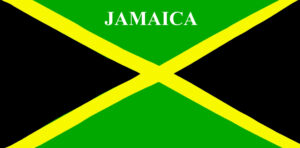 Education in Jamaica is free and universal for primary school with the goal of creating a literate, skilled, and patriotic society. Education is regulated by the Ministry of Education; comprised of eleven agencies, six regional offices, and a central office. The Ministry of Education currently overseas over 1,000 public educational institutions, over 100,000 students, and over 20,000 teachers.
Education in Jamaica is free and universal for primary school with the goal of creating a literate, skilled, and patriotic society. Education is regulated by the Ministry of Education; comprised of eleven agencies, six regional offices, and a central office. The Ministry of Education currently overseas over 1,000 public educational institutions, over 100,000 students, and over 20,000 teachers.
Primary school is compulsory in Jamaica for children ages 6-12 however there has been a large problem with school attendance in the past, something that the Ministry of Education has tried very hard to address. In 2010, just 81% of primary school aged children were enrolled. Students who complete secondary school have usually completed 11 grades, though students who take vocational or agricultural classes complete 12 grades.
The Caribbean Examinations Council administers the Caribbean Secondary Education Certificate (CSEC) for secondary students in the Caribbean region to determine if students have completed their secondary studies. The overall grade reflects the student’s performance on the unit as a whole while the profile grade reflects the performance on each module of the unit. The scoring for this examination is as follows:
|
Overall Grades |
Profile Grades |
Description |
|---|---|---|
|
I |
A |
Candidate shows a comprehensive grasp of the key concepts, knowledge, skills and competencies required by the syllabus. |
|
II |
B |
Candidate shows a good grasp of the key concepts, knowledge, skills and competencies required by the syllabus. |
|
III |
C |
Candidate shows a fairly good grasp of the key concepts, knowledge, skills and abilities required by the syllabus. |
|
IV |
D |
Candidate shows a moderate grasp of the key concepts, knowledge, skills and competencies required by the syllabus. |
|
V |
E |
Candidate shows a very limited grasp of the key concepts, knowledge, skills and competencies required by the syllabus. |
|
VI |
F |
Candidate shows a very limited grasp of the key concepts, knowledge, skills and competencies required by the syllabus. |
In higher education, institutions use the following grading scale:
|
Grade |
% Equivalent |
Description |
|---|---|---|
|
A |
70-100 |
First Class Honours |
|
B+ |
60-69 |
Upper Second Class Honours |
|
B |
50-59 |
Lower Second Class Honours |
|
C |
40-49 |
Pass |
|
Fail |
0-39 |
Fail |
A core curriculum was first established in 1980 and later revised and then fully implemented in 2002 for primary school, while the first secondary school curriculum was established in 1993. Class requirements for primary and secondary schooling in Jamaica include English, a foreign language, mathematics, science, social studies, drama, music, physical education, visual arts, religion, and information technology.
Postsecondary level education is offered through community colleges, teacher training colleges, vocational training, midwifery and nursing schools, the University of the West Indies, and the University of Technology. Accreditation for higher education institutes in Jamaica is overseen by the University Council of Jamaica (UCJ), which was established in 1987.
Credentials in Jamaica are earned following the completion of secondary school and the completion of postsecondary school programs. Following secondary school, students interested in pursuing further education sit for the CSEC and students who get above a III are considered to have passed. With the CSEC, students can attend postsecondary institutions to pursue degrees such as a two-year Associate’s degree or a four-year Bachelor’s degree.
© 2025 Gaetranslations | Terms & Conditions
Website by: Timefortheweb